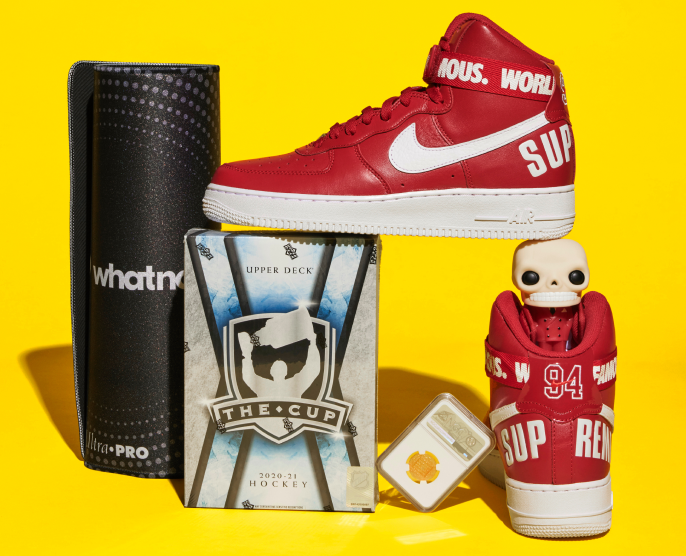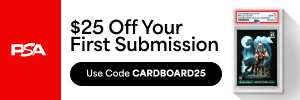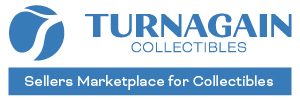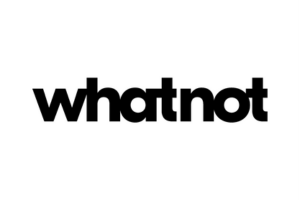
Law of Cards: Gloomy Forecast for Leaf in Lawsuit Versus Topps?
Few things infuriate me more than botched weather forecasts.
“Looks like five days from now there's an 80 percent chance of rain."
Eh. Five days later, clear blue skies, and 98 degrees.
“Overnight, 20 percent chance of light rain."
Eh! Instead, severe thunder showers with tornado sirens blaring.
“Sunday in St. Louis, the high will be 96 degrees."
Not even close. It was in the seventies.
As someone who often travels for work, weather is usually on my mind. This past weekend I was in Las Vegas on a business trip. And let me tell you, if you have to work on Labor Day weekend, there are worse places to be. Anyway, before leaving, I checked the weather and packed accordingly. The forecast for Labor Day was 103 degrees, with no rain. It is summer and Las Vegas is in a desert. But guess what? Labor Day in Las Vegas came and went and the temperature did not even touch 90 degrees. Now, I'll admit, it's not like I was shivering in my short sleeves (even though they were off by about 16 degrees), but there was something else they forgot to predict:
Rain.
That was not in the forecast, and I did not pack for rain.
I often rant to my colleagues that if we (as lawyers) made predictions that were so far off, our licenses would be in jeopardy. In fact, lawyers can't ethically predict the chances of success for a client's case or the amount they could potentially receive with a win. Why? There just are too many variables.
Lawyers recognize this. Meteorologists should, too.
That being said, when I write about the legal industry, I can make predictions because it's not my client and because I am not offering legal advice. This is my chance to be a weatherman and tell you which way I think the wind's blowing.
Unlike meteorologists, when I make my predictions, I hedge because I recognize there are things I do not know. Like, what are the plaintiff and defendant's strategies? What evidence have the parties collected? And is one side disguising its position to lull the other into a false sense of security?
Which brings us to the Topps v. Leaf lawsuit. As I previously wrote, Topps sued Leaf over Leaf's 2011 Best of Baseball product. Basically, Topps alleged that because Leaf's sell sheet for the set focused on the inclusion of numerous Topps' cards, including a 1952 Topps Baseball Mickey Mantle, it infringed Topps' trademarks and copyrights.
The docket in this case tells us nothing new. All we have is Topps' complaint from which to determine the parties' positions. Leaf, so far, has been silent. The company has until September 15 to respond In the meantime, there are other sources of evidence we can look at—the real world. And there's a potential bombshell there.
The Best of Baseball product is no longer listed on Leaf's website, and the sell sheet (the focus of Topps' complaint) has also been removed. If Leaf kept the product and the sell sheet on its site, it would be a strong signal that Leaf believes it is in the right. But they are missing. Does the fact that both have been removed mean Leaf is throwing in the towel?
(Here's my hedge.) Maybe.
The removal of the sell sheet and product itself likely means one of the following:
- Leaf has sold quite a bit of its product, maybe even all of its inventory. If it has, it makes little sense for Leaf to keep the sell sheet on its website and risk more liability.
- There is the chance that Leaf's removal of not only of the sell sheet, but also of the entire product from its website, is a capitulation. It's not necessarily a surrender or acknowledgement that Topps would win the suit. Rather, it is a recognition that fighting the lawsuit may eat up all of Leaf's potential profits on this product. In other words, the case puts Leaf in a no-win position.
- Or, Leaf could still want to fight the suit but just removed the sell sheet and product, to minimize any potential damages that might be awarded against it. It's one thing to keep both the product and sell sheet on the website to show a firm belief in Leaf's position. It's another to be foolhardy and not recognize the risk involved with any lawsuit. So why risk extra damages by keeping them up?
Wouldn't you love to hear a weather personality forecast something like that?
“Tomorrow, either it's going to be 98 degrees. Or it's going to be 72 degrees. Or it's going to rain."
That's probably how the weather should be predicted. Provide all the possible alternatives and then state which alternative is the most likely.
For the Topps v. Leaf case, which do I think is most likely? Here's my second hedge. I believe it's a combination of one and two. I suspect Leaf sold out its inventory, or nearly sold out. There are many reviews and box breaks of 2011 Best of Baseball floating about, plus a number of dealers are still selling boxes that they purchased from Leaf (or from a Leaf distributor). Therefore, if Leaf has no inventory left, why continue to advertise?
More telling, I think Leaf's removal of the entire product not just the sell sheet from the website, looks a little like a white flag. Heck, if you click on “baseball" products, it takes you to a blank page!
Leaf still may continue to fight the suit for the principle and to get clarity. As I said before, I think Leaf has a decent position because the law surrounding buyback cards is gray with unanswered questions. Can a company include another company's cards in its product? And if so, can it advertise with those buybacks? Given this uncertainty, it may be worthwhile for Leaf (and Topps) to have a court offer guidance.
We shouldn't use the fact that the sell sheet and its product are no longer on Leaf's website to make a definite determination of what happened. But it does raise more questions that only future court filings will provide insight into. If the parties together file a dismissal in the near future, I'd put this down as a win for Topps. If Leaf answers the complaint by September 15, it looks like the fight will continue, and the removal of the product and sell sheet is simply Leaf being prudent.
My hunch, though, is it looks dark and gloomy for Leaf. Could be a sign of an early fall.
Update:
After the article was posted, Leaf's Brian Gray informed me that the sell sheet and product were removed from the website for maintenance purposes only and that they will be posted again. This looks like what is called in the meteorological business as a “blown forecast," because I did not have a fourth option, "Just a temporary glitch. The fight will continue!" Gray confirmed that Leaf will respond to Topps' complaint and continue the fight. Stay tuned for more updates.
The information provided in Paul Lesko's “Law of Cards" column is not intended to be legal advice, but merely conveys general information related to legal issues commonly encountered in the sports industry. This information is not intended to create any legal relationship between Paul Lesko, the Simmons Browder Gianaris Angelides & Barnerd LLC or any attorney and the user. Neither the transmission nor receipt of these website materials will create an attorney-client relationship between the author and the readers.
The views expressed in the “Law of Cards" column are solely those of the author and are not affiliated with the Simmons Law Firm. You should not act or rely on any information in the “Law of Cards" column without seeking the advice of an attorney. The determination of whether you need legal services and your choice of a lawyer are very important matters that should not be based on websites or advertisements.
 | Making purchases through affiliate links can earn the site a commission |



























